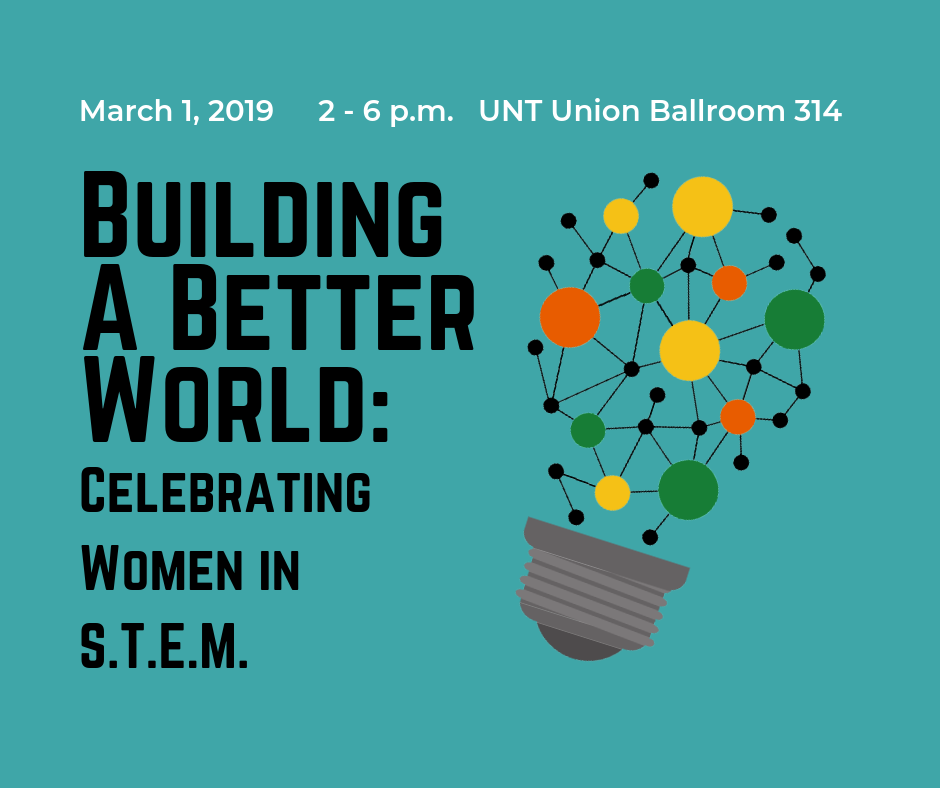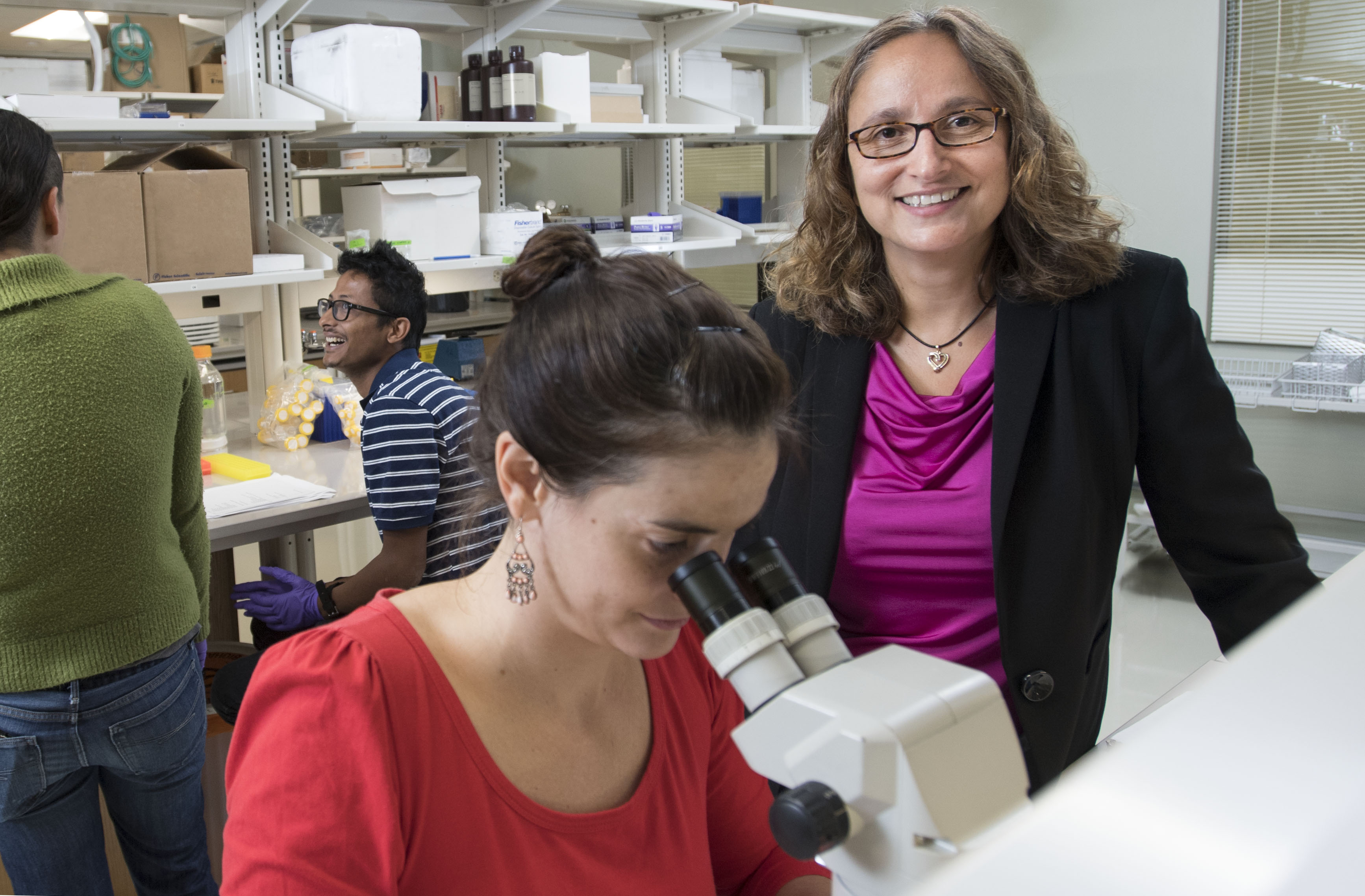Science
Hanchen Huang named Fellow of ASM International
Hanchen Huang, new dean of the University of North Texas College of Engineering, recently was elected Fellow of the ASM International for his distinguished contributions to the fields of materials science and engineering.
Elected by his peers, Huang received the ASM International Fellow for his scientific contributions in developing a theoretical framework of nanorod growth, technological contributions in inventing metallic...
Two UNT science students enter the annals of chemistry
University of North Texas chemistry students Kortney Melancon and Brooke Otten have been credited with the discovery of a new chemical bond, which will forever carry their names.
The Otten-Melancon bond is a fundamental find that shows two supposedly inert metals, gold and copper, interacting at the subatomic level.
“Gold and copper are closed-shell metals. Unlike many metal atoms, they don’t adopt or give up electrons. They have “shells” of electrons that stay in place. This...
Severe storms rip roofs off of UNT’s Rafes Observatory buildings
DENTON (UNT), Texas — The University of North Texas Rafes Urban Astronomy Center in Denton suffered serious damage from storms that moved through the area Wednesday night. As a result, all scheduled activities at the center have been canceled.
“This is quite a hit for us. We were planning on a large crowd for this Saturday’s open house and star watching party– our first in almost two months of rainy Saturdays,” said Ron “Starman” Diiulio, astronomy laboratory...
UNT students create augmented reality program for space helmets
University of North Texas juniors David Woodward, Tim Stern and Juan Ruiz are reaching for the stars with an augmented reality program that could change the way astronauts communicate in space.
Their work is part of the NASA Spacesuit User Interface Technologies (SUITS) Design Challenge, which tasked students to develop a system to provide real-time visual communication via an astronaut’s helmet visor.
“Currently during a spacewalk, astronauts communicate with mission control via radio transmission. Voice communication is...
UNT astronomy research collaboration unveils its largest telescope
As part of an informal collaboration, the University of North Texas has completed the successful restoration, update and installation of a half- meter CDK (Corrected Dall-Kirkhand) telescope to be used for student photometric and astrometric research.
“A CDK telescope utilizes two mirrors, special lenses and a charge-coupled device (like those found in digital cameras) to produce extremely high-quality images,” said Ron Diiulio, astronomy lab director at UNT’s College of Science. “This telescope...
Connected autonomous cars might be in your future
DENTON (UNT), Texas — The University of North Texas College of Engineering has received a $359,993 Research Experience for Undergraduates grant from the National Science Foundation to host camps on vehicular edge computing and security for the next three summers.
The 10-week camps will be open to 10 students who come from populations underrepresented in the computer...
Making computers understand negation
Eduardo Blanco, an assistant professor with the University of North Texas College of Engineering, intends to use a $500,000 NSF Faculty Early Career Development Program (CAREER) grant to teach computers the intricacies of negation.
“To a computer trying to understand human language, the word never can be perplexing. What computers don’t seem to...
UNT student and mentor develop new tool for cancer research
A University of North Texas researcher and a 16-year old student are working together to fight cancer with mathematics.
Julia Christina Ayalde Camacho, a student in the Texas Academy of Mathematics and Science and Xuexia Wang, an associate professor and researcher of statistics in UNT’s Department of Mathematics, are working together as mentor and student to explore new ways to apply computational biology and statistics to...
Building a Better World: UNT Celebrates Women in STEM

What: The University of North Texas College of Science, College of Engineering, Office of Research and Innovation and Office of Faculty Success are sponsoring “Building a Better World,” an on-campus symposium to celebrate women in STEM (Science, Technology, Engineering and Math) fields. The symposium will include special guest speakers, an interactive panel discussion, a research poster session and networking opportunities with many organizations across campus.
When: 2-6 p.m. March 1 (Friday)...
UNT professor studies how to squeeze more seed oil from the common pennycress weed

Processed pennycress seed oil can be used as aviation fuel
University of North Texas College of Science associate professor Ana Alonso is leading a research project to study a unique type of seed oil produced by the pennycress plant. This research is supported by the Department of Energy Office of Biological and Environmental Research.
“What I am trying to do is optimize the amount of seed oil...




